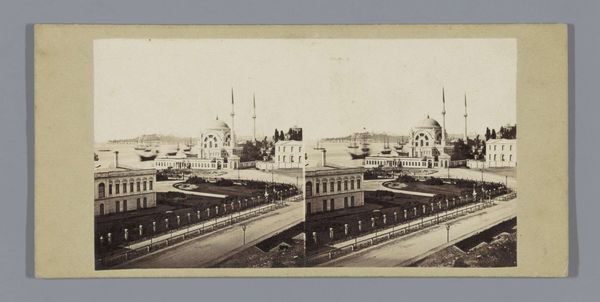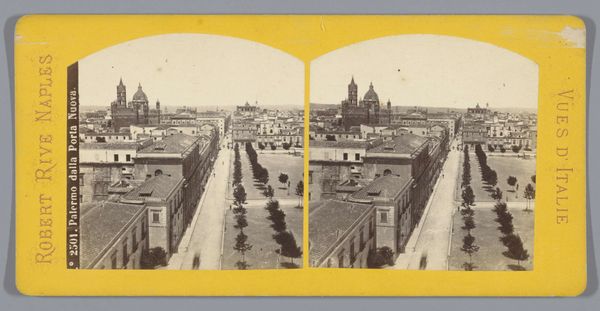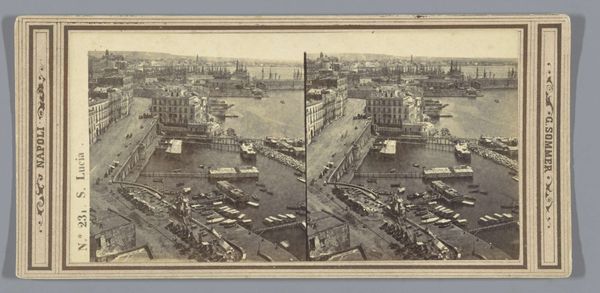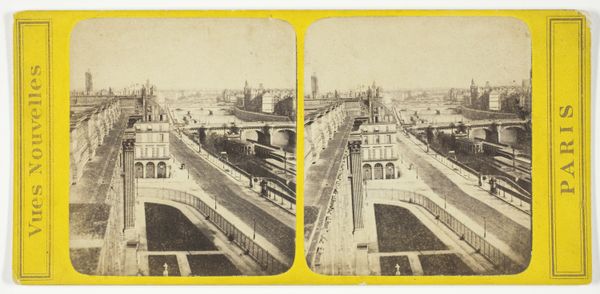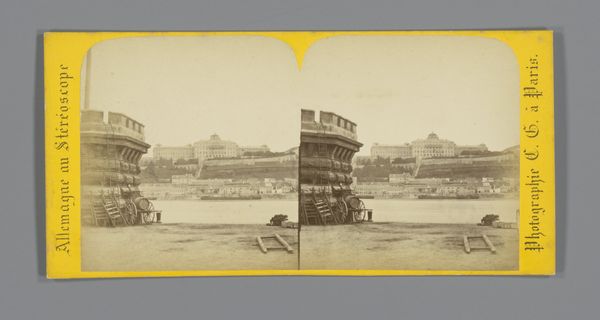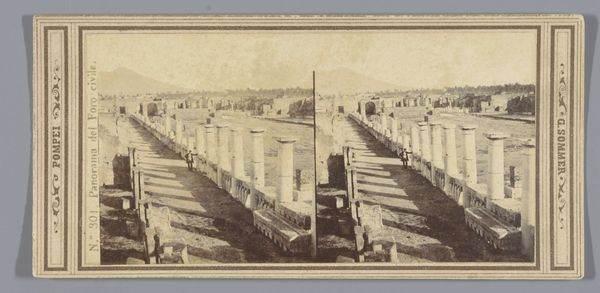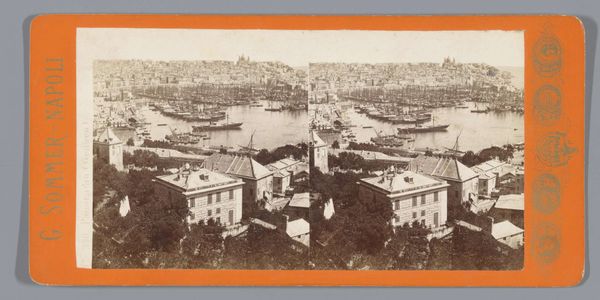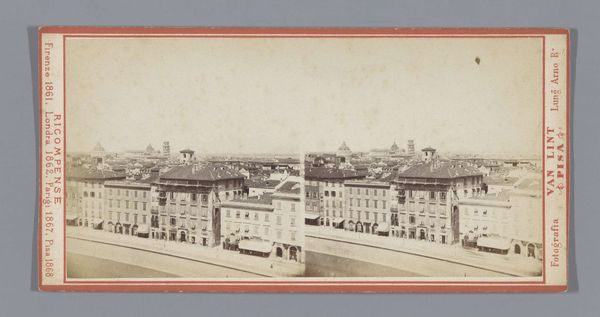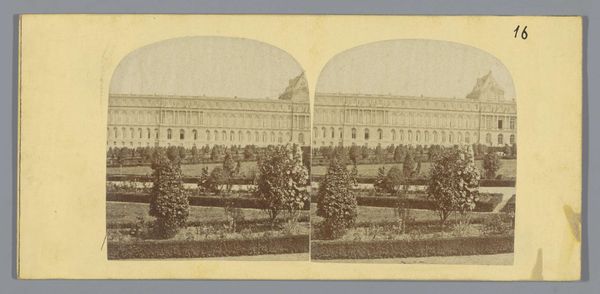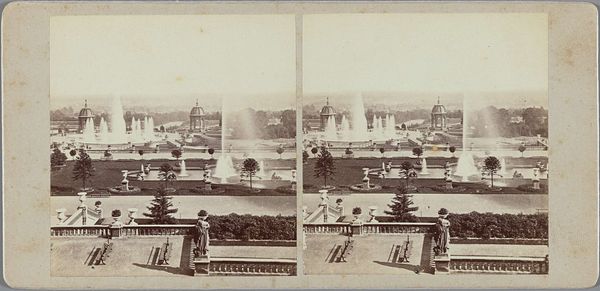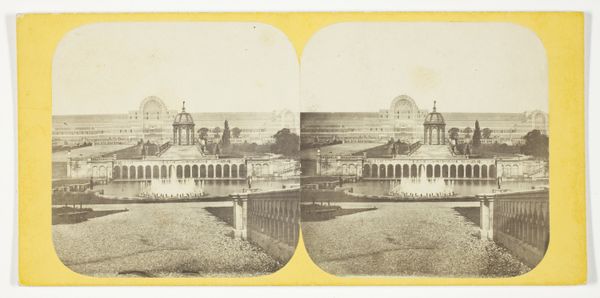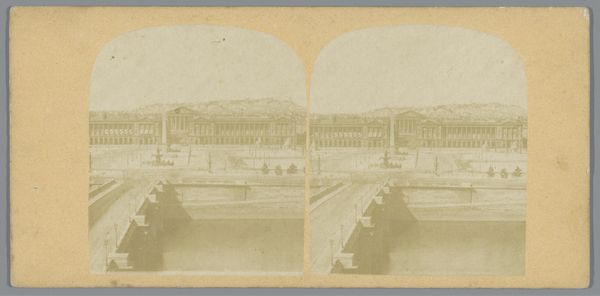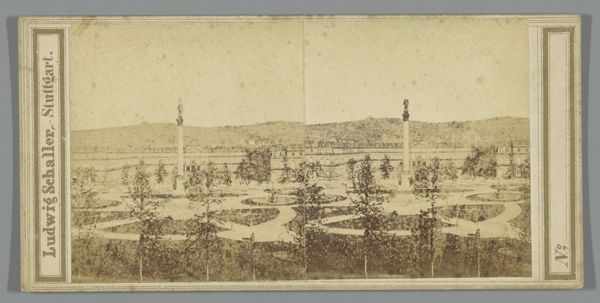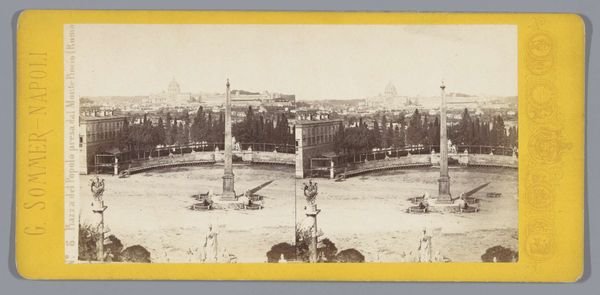
print, photography, gelatin-silver-print
# print
#
photography
#
gelatin-silver-print
#
cityscape
Dimensions: height 85 mm, width 170 mm
Copyright: Rijks Museum: Open Domain
This stereoscopic photograph, a view of St. Petersburg taken from St. Isaac's Cathedral, was made by Albert Felisch using the wet collodion process. This method, popular in the mid-19th century, involved coating a glass plate with a light-sensitive emulsion immediately before exposure in the camera. The resulting negative, fragile and ephemeral, was then used to create multiple prints on paper. This speaks to the medium's complex relationship with labor and mass production. Consider the photographer, who was also something of a chemist, setting up a temporary darkroom on location. Consider the viewers, who would have purchased such images as relatively inexpensive keepsakes, or as aids to memory and discussion. And consider the scene: St. Petersburg, a showpiece of imperial ambition, made available as an object for mass consumption. Understanding photography in this way, as a product of both craft and industry, allows us to move beyond traditional distinctions between art and documentation. It encourages us to appreciate the social life of images, and the many hands that made them.
Comments
No comments
Be the first to comment and join the conversation on the ultimate creative platform.
